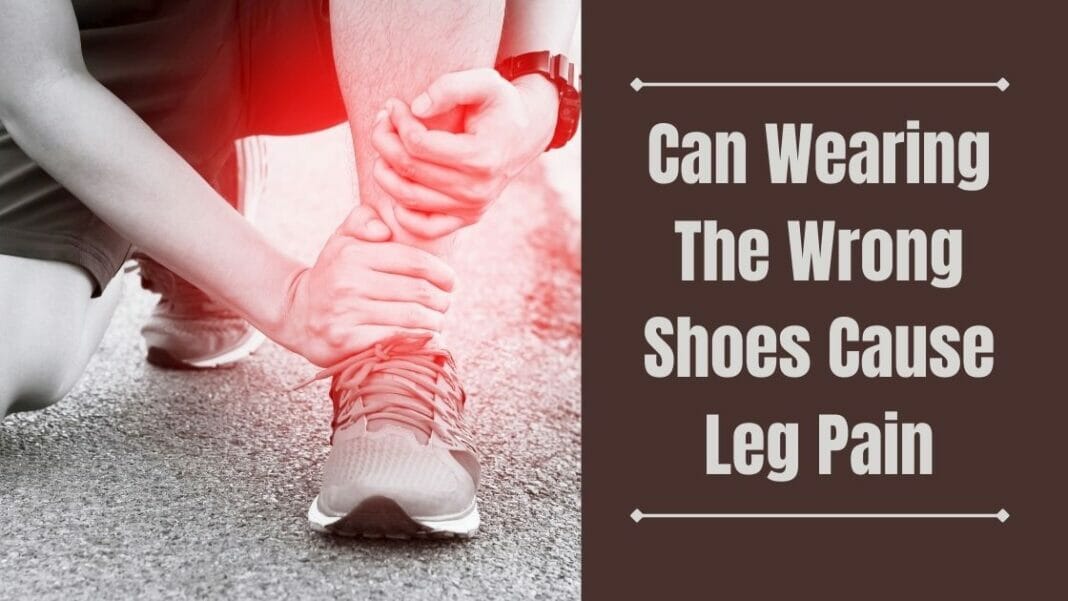A study by the National Health and Nutrition Examination Survey (NHANES) found that almost one in three adults had foot problems, with nearly half of them having at least one-foot trouble that was severe enough to require treatment.
Can Wearing The Wrong Shoes Cause Leg Pain? Yet, if you wear shoes that are too tight, they can cause problems as well. Tight shoes can cause your feet to swell, which can be painful and cause blisters.
If you’re examining for a fine pair of comfortable shoes, look for a wide shoe with a good heel. Shoes with a narrow heel can cause your feet to swell. If you have any queries about buying the right shoes, talk to a podiatrist.
Table of Contents
Can Wearing The Wrong Shoes Cause Leg Pain
If you wear them incorrectly, a good pair of shoes can make a huge difference in your comfort and health.
If you’re examining for a good pair of comfortable shoes, look for a wide shoe with a good heel. Shoes with a narrow heel can cause your feet to swell. If you have any queries about how to buy the right shoes for you, talk to a podiatrist.
What Is the Right Fit for Your Feet?
You need to know what type of shoes you should be wearing.
The right pair of shoes can make a huge difference in your comfort and health. A good fit means you’re getting the support you need from your shoe. When you wear too-small shoes, it can cause foot problems. When you wear too large a shoe, it can cause blisters.
If you’re looking for a proper pair of comfortable shoes, look for a wide shoe with a good heel. Shoes with a narrow heel can cause your feet to swell. If you have any queries about how to buy the right shoes for you, talk to a podiatrist.
Good Supportive Shoe
An excellent supportive shoe has: – A supportive arch – Good shock absorption – Good traction – Comfortable Padding – Good durability.
A Supportive Arch
An arch is the part of your foot where the bones meet each other. Your arch helps to support your foot and keep it stable.
Good Shock Absorption
The shock absorption in your shoe will help prevent injuries from occurring. The shock absorption in your shoe will help prevent injuries from occurring.
Good Traction
A shoe that has good traction will allow you to walk more easily. Comfortable Padding Your shoe should have a comfortable lining that helps to keep your foot warm and dry.
Good Durability
A good shoe should be durable. It should be capable of withstanding the wear and tear of your daily activities.
Your shoe should last for a long time. The durability of your shoe will help prevent foot problems from occurring.
FAQs
Can wearing certain shoes cause leg pain?
No, it’s not. But wearing them with a tight tourniquet and then having someone else remove the tourniquet can be very painful. I’ve been in this situation and have had to tell someone to stop, and the pain is unbearable. This happens because there is no blood flow through the lower extremity to keep the muscles from becoming weak or stiff.
What can wearing the wrong shoes cause?
Wearing incorrect shoes can cause various problems, including blisters, rubbing, and corns. The wrong shoes can also cause your feet to slide around, making it difficult to walk or run.
Can shoes cause nerve damage?
Shoes don’t cause nerve damage, but they can cause or contribute to nerve damage. The common misconception that shoes cause nerve damage is that when we walk barefoot, we have no padding and are more susceptible to injuries. However, this isn’t true. There are many different kinds of shoes with varying degrees of protection, and the only factor determining how much protection you get from your shoe is the type of material used.
Conclusion
In short, there are many types of shoes, and the best ones for you are the ones that will provide the support you need. They will be the most comfortable for you, and they will be the most durable.




















